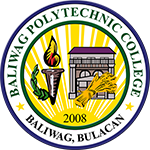PROGRAM DESCRIPTION
The degree program described herein shall be called Bachelor of Science in Accounting Information System (BSAIS). Higher Education Institutions (HEls) offering Bachelor of Science in Accounting Technology (BSAT) shall likewise adopt the Bachelor of Science in Accounting Information System (BSAIS).
NATURE OF THE FIELD OF STUDY
This is the program that provides general accounting education to students wanting to pursue a professional career in Accounting Information System. Further, this is the program that complies with the latest competency framework for professional accountants issued by the International Federation of Accountants (IFAC) thru their International Education Standards. Thus, this qualifies the graduate of this program to take assessments leading to certifications in Accounting Information System given by global professional Accounting Information System organizations.
As a field of study, Accounting Information System is a profession that combines knowledge in business, accounting and computer systems. It involves partnering with management operations and decision-making, by coordinating the information technology activities, providing expertise in choosing the best software or designing and maintaining the overall information system, assessing the integrity of systems, assessing the inefficiencies of a company’s system and recommending improvements to assist management in the formulation and implementation of an organization’s strategy.
By working across functions, Accounting Information System professionals understand the links between operational activity, financial resource generation and consumption, and value generation and preservation. They perform a vital role in supporting organizational performance through an effective information system.
Accounting Information System professionals are expected to: (a) apply accounting, finance and computer skills; (b) ensure these skills are applied in the context of the business; (c) to influence the decisions, actions and behaviors of others; and (d) lead the organization at different levels.
Accounting Information System professionals should pursue lifelong learning, and continuous professional development. They must be objective, ethical and consider the public interest. They should help colleagues to overcome bias by rooting organizational decision-making and implementation through an effective information system, and by providing empirically tested, objective solutions wherever possible.
Accounting Information System professionals must pay due regard to the primacy of the organization’s customers and the range of relationships that enable a business to operate. They must also understand the global macro-economic environment to assess information based on its relevance to their organization.
A combination of accounting, financial and computer systems expertise, business understanding and analytical skills and appropriate business experience means that accounting information system professionals are practical and grounded in operational reality.
PROGRAM GOALS (Program Goal will be the expected outcomes of the graduates within 3 to 5 years of graduation that will included in the assessment)
The primary goal of accounting education is to produce competent and ethical professional accountants capable of making a positive contribution over their lifetimes to the profession and society in which they work. In the face of increasing changes that they will meet later as professional accountants, it is essential that students develop and maintain an attitude of learning to learn, to maintain their competence later as professional accountants.
The BSAIS program should provide a foundation of professional knowledge, professional skills, and professional values, ethics and attitudes that enable them to continue to learn and adapt to change throughout their professional lives. These capabilities will enable accounting information system professionals to identify problems, know where to find this knowledge and know how to apply it in an ethical manner to achieve appropriate solutions. The balance of these elements may vary but what is required is to develop the knowledge base, strong skills and ethical values in order to produce competent accounting information system professionals with appropriate values, ethics and attitudes.
An accounting information system professional may cover a number of different technical or strategic positions. Technical positions span from more basic positions (main responsibilities would include inputting data in order to produce relevant Accounting Information System information) to more advanced positions (main responsibilities would include determining what data to input, how to elaborate upon it and deciding what information is relevant for whom, and for what purpose).
The responsibilities may be wider at a more strategic position, such as finance director (also called chief financial officer – CFO), controller (also called chief accounting officer – CAO) or chief information officer – CIO. These are executive positions where accounting information system professionals are expected to deploy their technical and strategic skills to the extent that they have a significant input in determining their firms’ major decisions.
Most commonly, accounting information system professionals are expected to contribute to planning, controlling and performance evaluation through an effective information system. Senior accounting information system professionals, who are involved in any of those three roles, need an extensive knowledge of the operations of the organization they work for. In this way they will be able to recommend to the top management courses of action that fulfil their strategic goals. Gaining experience in various roles within the organization or in other organizations will be essential for the professional to be able to convincingly discuss strategic decisions with the top management. More specifically, the greater proximity the role has to the CFO, the more responsibility and influence it will have to design and implement systems for treasury, risk management, tax planning, investor relations, internal audit and overall control.
The strategic relevance of Accounting Information System is represented by its ability to support the management in taking strategic decisions, which include the definition of an effective management information system. Accounting information system professionals collaborate with the organization’s managers in preparing alternative scenarios and evaluating different possible courses of actions.
Accounting information system professionals must reflect on the ethical implications of their job, which implies also addressing the question of to whom they respond with their actions and decisions. Accounting information system professionals respond to the owners along with many other organizational stakeholders. The social environment of an organization is much wider than just its owners, employees and customers. Creditors, competitors, other organizations, neighbors, suppliers and other stakeholders may be equally affected by the decisions taken in an organization.
SPECIFIC PROFESSIONS/CAREERS/OCCUPATIONS FOR GRADUATES
The field of accounting offers stimulating and challenging work that is constantly evolving. The BSAIS program seeks to prepare the student for an Accounting Information System career and allied fields in business and economics.
PROGRAM OUTCOMES
The graduates, have the ability to:
- Articulate and discuss the latest developments in the specific field of practice. (PQF level 6 descriptor);
- effectively communicate orally and in writing using both English and Filipino;
- Work effectively and independently in multi-disciplinary and multi-cultural (PQF level 6 descriptor);
- act in recognition of professional, social, and ethical responsibility; and
- Preserve and promote “Filipino historical and cultural heritage” (based on RA 7722).
Course Features
- Lecture 0
- Quiz 0
- Duration 50 hours
- Skill level All levels
- Language English
- Students 0
- Assessments Yes






